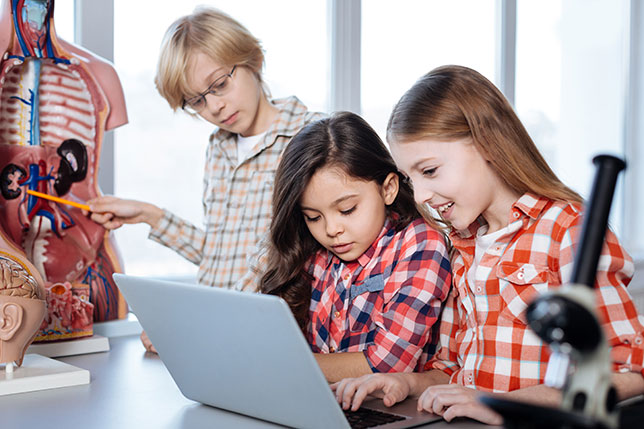NGSS Issues 'Lessons Learned' for Instructional Materials and PD
- By Dian Schaffhauser
- 04/18/17

Start with a small cohort of teachers; provide professional learning opportunities to all teachers; include school leaders in the training. Those are some of the more obvious best practices tied to professional development for teachers learning how to teach to the Next Generation Science Standards, shared in a new guide published by NGSS.
But what about these practices? Running a "teaching learning collaborative" or lesson study, in which a group of teachers create a learning sequence, study an extant lesson and modify the lesson. Or the development of conceptual flows to lay out coverage of broad science concepts all the way down to creation of detailed storylines for units and lessons. These are two of the more popular best practices identified in the same guide.
Those are a sampling of what readers will find in the "Lessons Learned from the NGSS Early Implementer Districts: Professional Learning." The 18-page report shares insights from eight traditional school districts and two charter management organizations that were selected to participate in the "California NGSS K-8 Early Implementation Initiative," a state project intended to build school system capacity for implementing NGSS. The idea was to monitor "early implementer" districts and share their reflections on what was needed to introduce the new science standards into state classrooms. But the same lessons also offer guidance for any school in the country undertaking the same makeover.
A second report with a similar format covers the transition in instructional materials. Coverage in that 21-page document hits on such topics as how teachers are modifying their existing lessons to make them more aligned with NGSS, including connections to math and English language arts standards and making sure that the materials are structured to put students in the driver's seat for learning and making meaning "as opposed to the educator doing this work."
Both reports were written based on interviews with nine of the 10 school systems by Achieve, a non-profit founded by state governors and focused on education reform. The organization was heavily involved in the state collaboration that forged the Common Core State Standards and NGSS.
The professional learning guide is available on the NGSS website here.
The instructional materials guide is available here.
About the Author
Dian Schaffhauser is a former senior contributing editor for 1105 Media's education publications THE Journal, Campus Technology and Spaces4Learning.